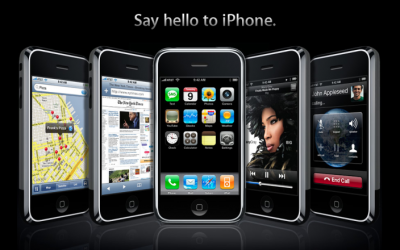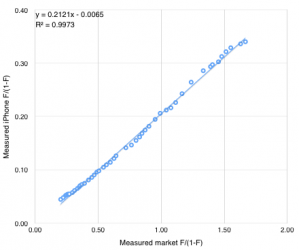Analyst Estimates Two Thirds Of Americans Will Use An iPhone By 2017

During the next four years, smartphones will reach saturation point in the United States. By 2017, two thirds of all Americans will have an iPhone, if we are to believe Horace Dediu of Asymco. He arrived to this conclusion via a series of calculations.
Horace Dediu’s calculations are based on 3 factors. The first factor is represented by the rate of growth observed in the smartphone market – it will continue to grow at the same pace. The second factor is represented by the fact that the saturation point for smartphones is going to be 90% (it is important to note here that technology cannot reach a 100% saturation point). The third and final factor is represented by the fact that Apple’s market share will remain mostly constant. Horace dediu mentions that the growth of the iPhone is exactly the same as the growth of the smartphone market. Below,you can find Horace Dediu’s detailed explanation:
If we believe that the iPhone can be modeled behaviorally then it may be possible to forecast its growth. One can simply draw a line extending the existing red segment above and read the F/(1-F) figure at any point in time. Solving for F results in a measure of penetration and hence number of users (if population is known.)
An alternative is to use the following formula derived from the linear interpolation of the two measured market shares. iPhone market share is y/(1+y) where y=0.21x and x = F/(1-F) and F is the expected market penetration of smartphones.
So if F = 91%, x = 10, y = 2.11 and therefore the iPhone market share = 68%.
We also know from the plot of the market that F = .91 is reached around February 2017. So we can suggest that at 90% penetration (approximately saturation) the iPhone will have 68% market share of users in the US. Forecasting the addressable market (US population aged older than 13) at about 266 million that implies 180 million US users of the iPhone by early 2017.

The estimate is a bit hazardous, as the tech industry is constantly changing and four years may bring a lot of surprises. Both Nokia and BlackBerry are examples that success in the past does not guarantee success in the future. What do you think of Horace Dediu’s estimate? Do you own an iPhone and if you don’t do you plan on getting one?











